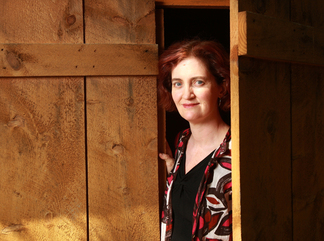Philosophy
Donoghue has always used her sexuality and nationality in her writing. The first novel that she wrote, Stir-Fry, is about an Irish women who discovers her sexuality. She believed that it was important to write about what you know and what you are familiar with, and this was demonstrated in her first novel. Donoghue also does a lot of research before she writes. For example, her international best-seller and award-winning novel Room is a story about a mother and son who are forced to live in a single room and have never seen the outside world. Donoghue did plenty of research before writing this novel; she studied the effects on children who are born in concentration camps, conceived through rape or in prison, children who are raised by parents who hate them, and even terrible things that happen to adults. She used this information to help her create Room and this amazing novel has won several awards.
Genres
Donoghue is most widely known for writing fiction, however she is a very experienced writer in several different genres. Her fiction work includes novels and short stories. She also writes drama for stage and radio, short films and literary history.
On Donoghue's official website she answers multiple questions that are frequently asked of her. The following question and response provide insight as to why Donoghue chooses to write in the genres that she does:
"What draws you to work in such different genres?"
"Fiction is my favourite (and pays the mortgage), and all I have time for in these hectic babyminding years. But theatre has provided the most exciting moments in my career, because working with a company (as I’ve done with Glasshouse in Dublin, and the Magic Theatre in San Francisco) is so stimulating and sociable, and I get to watch my work directly affecting an audience. In the case of radio drama, I can’t see them, but I can reach a much wider pool of listeners, and it’s a wonderfully cheap and flexible form compared with tv or film; it’s no problem to set a scene at the Battle of Hastings, or on the moon! As for literary history and biography, it’s slow, painstaking work, but it’s deeply satisfying to feel that you’re writing something solid and accurate, especially if you’re bringing obscure people or themes to life." (Donoghue)
On Donoghue's official website she answers multiple questions that are frequently asked of her. The following question and response provide insight as to why Donoghue chooses to write in the genres that she does:
"What draws you to work in such different genres?"
"Fiction is my favourite (and pays the mortgage), and all I have time for in these hectic babyminding years. But theatre has provided the most exciting moments in my career, because working with a company (as I’ve done with Glasshouse in Dublin, and the Magic Theatre in San Francisco) is so stimulating and sociable, and I get to watch my work directly affecting an audience. In the case of radio drama, I can’t see them, but I can reach a much wider pool of listeners, and it’s a wonderfully cheap and flexible form compared with tv or film; it’s no problem to set a scene at the Battle of Hastings, or on the moon! As for literary history and biography, it’s slow, painstaking work, but it’s deeply satisfying to feel that you’re writing something solid and accurate, especially if you’re bringing obscure people or themes to life." (Donoghue)

